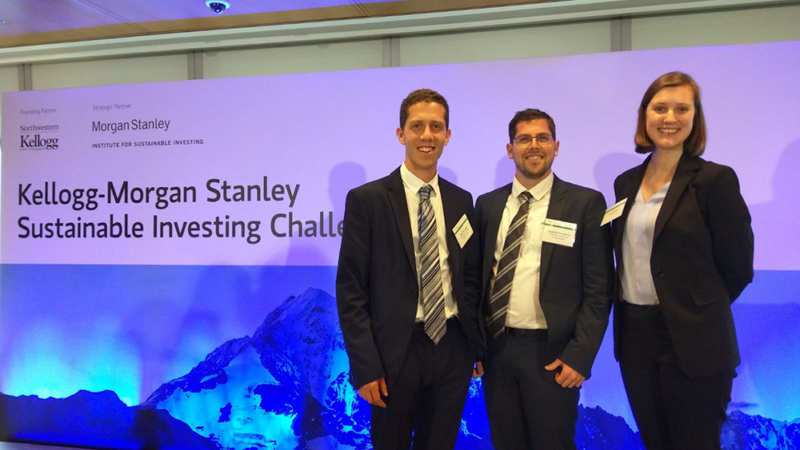ImpactAlpha, April 13 — A dozen finalists in the Kellogg-Morgan Stanley Sustainable Investing Challenge are swapping debt for nature, tracking water credits, insuring soil and sharing income with proposals for new financing mechanisms to “drive sustainability impact at scale.”
Judges will choose winners of the 13th annual competition in London on Friday. (Update: The winner was the team from Gulu University in Uganda, which proposed Village Savings and Agriculture Insurance to underwrite crop insurance for smallholder farmers through village savings and loan agencies.)
(for context, see “MBA and other students rise to the sustainable investing challenge”).
This year’s contest saw 313 students on 67 teams submit proposals for projects in 27 countries. Among the finalists:
Auaca Fund
A team from University College London proposes redirecting Brazilian payment on its sovereign debt to prevent deforestation and promote sustainable farming.
Water Credit Offset Bonds
To address water scarcity in the Colorado River basin, student’s from UC Berkeley’s Haas School of Business designed blockchain-enabled, variable-rate bonds based on water credits.
HIV Fighter Fund
A special purpose vehicle to incentivize joint ventures between global pharmaceutical companies and drug manufacturers in sub-Saharan Africa would ensure the supply of lifesaving drugs under a proposal from a team from Northwestern’s Kellogg School of Management.
Soilsurance
Farmers can earn discounts on their crop insurance premiums with soil-building practices; improved farm resilience reduces payouts, says the team from Columbia Business School.
Village Savings and Agriculture Insurance
A team from the agriculture factory at Gulu University in Uganda proposes to underwrite crop insurance for smallholder farmers through village savings and loan agencies.
Saarthi
A team from the University of Connecticut and Yale’s School of Management, designed a social enterprise to provide social services, job training and loans to victims of domestic violence in India in exchange for a share of future income.











